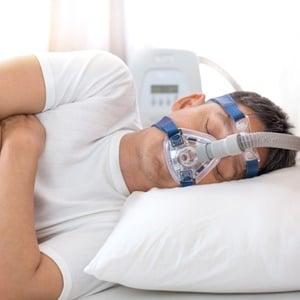
People with sleep apnoea have higher chances of developing gout, a new study suggests.
Researchers analysed data on nearly 16 000 people with sleep apnoea and more than 63 000 people without apnoea who were followed for a median of nearly six years. (Half were followed longer, half for less time.)
Overall, 4.9% of sleep apnoea patients and 2.6% of the others developed gout. People with sleep apnoea had a 42% higher risk of gout, the study found.
The increased risk was highest one to two years after sleep apnoea diagnosis, and was greater for patients with normal body weight than among those who were overweight or obese, the researchers said.
An association, not a cause
Of course, the study couldn't prove that apnoea causes gout, just that there was an association.
Gout is a painful form of arthritis caused by a build-up of uric acid in the body. It causes swollen, red, hot and stiff joints.
The study was published in the journal Arthritis & Rheumatology.
"People with sleep apnoea are at an increased risk of gout in both the short and long term. Since this risk was highest in people with normal body mass index, doctors and other health professionals should consider the possibility of gout in patients with sleep apnoea regardless of body mass index," study co-leader Edward Roddy said in a journal news release.
Roddy is a clinical lecturer in rheumatology at Keele University in Staffordshire, England.
Oxygen and uric acid
It's believed that periodic low levels of oxygen caused by sleep apnoea lead to overproduction of uric acid, causing gout, the researchers said.
"Sleep apnoea is commonly treated with continuous positive airways pressure – or CPAP – therapy. Since CPAP treatment corrects low oxygen levels it might also be expected to reduce uric acid levels, which could possibly reduce the risk of developing gout or treat existing gout," said study co-leader Milica Blagojevic-Bucknall.
She said more research is needed to investigate the effect of CPAP treatment in people with gout. Blagojevic-Bucknall is a lecturer at Keele University.
Image credit: iStock




 Publications
Publications
 Partners
Partners















